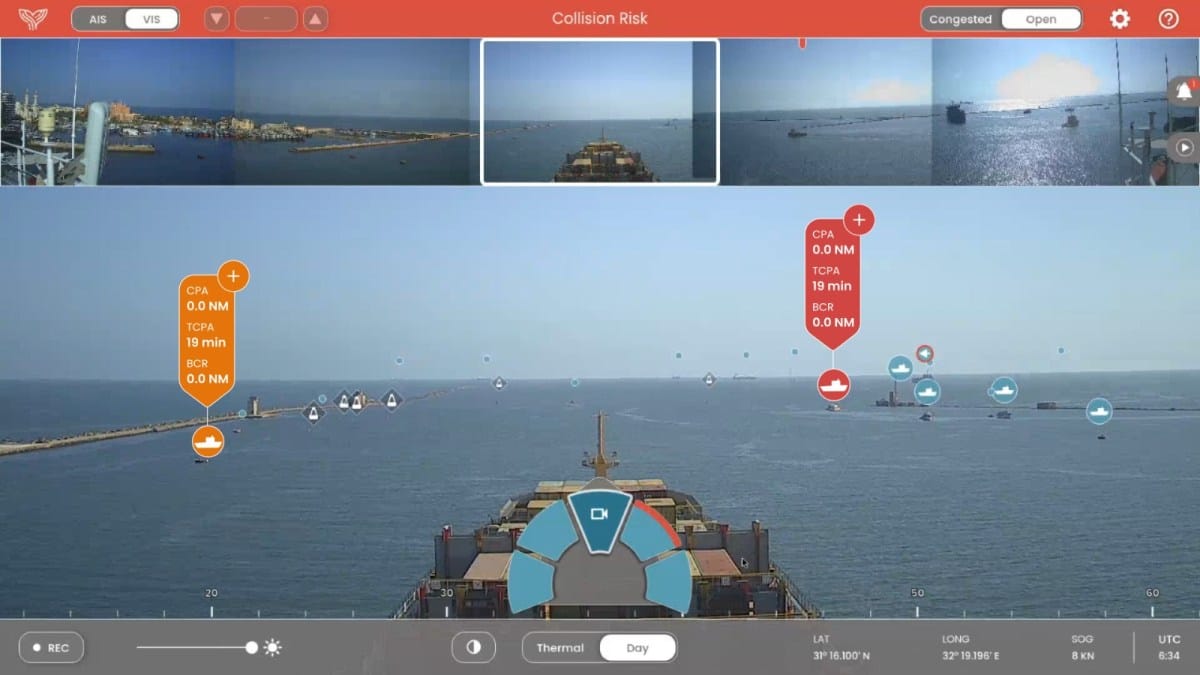The Rise of Autonomous Navigation in the Maritime Industry

Introduction
Autonomous navigation, where ships steer themselves guided by AI technology, is a rapidly growing market that is revolutionizing the maritime industry. With the use of advanced artificial intelligence, ships are able to navigate more efficiently, resulting in significant cost savings and increased safety.
Orca AI: Pioneering Autonomous Navigation
Orca AI, a London-based startup, has made headlines by successfully powering the world's first autonomous commercial ship voyage in congested waters. Founded in 2018 by Israeli naval technology experts Yarden Gross and Dor Raviv, Orca AI has developed AI navigation technology that processes visual information to keep ships on course, allowing the crew to focus on other important aspects of the voyage.
Funding and Expansion
Orca AI recently secured $23 million in new funding, bringing its total raised capital to nearly $40 million. This funding will be used for scaling and expansion, as well as investing in new products and expanding the engineering team. Orca AI aims to leverage the data ingested from clients to further enhance its platform and services.
Benefits and Results
Orca AI's autonomous navigation system has shown impressive results during trials, including:
- 33% reduction in "close encounters in open waters"
- 40% reduction in "crossing events"
- Fuel savings of $100,000 to $300,000 per vessel per year
- CO2 reduction of 72,716 tons across 1,000 vessels
Industry Impact
With the shipping industry under pressure to reduce its carbon footprint, technologies like autonomous navigation are becoming essential for improving efficiency and sustainability. The potential for reducing fuel consumption and emissions, while increasing safety and operational efficiency, makes autonomous navigation a key focus for the maritime industry.
Future of Autonomous Navigation
Orca AI's CEO, Yarden Gross, envisions a future where oceangoing vessels will sail without any crew. By optimizing and automating various aspects of the voyage, such as fuel consumption, emissions, and estimated time of arrival, Orca AI is leading the way in creating a platform for autonomous fleets.
Industry Perspective
Hemi Zucker, managing partner at OCV Partners, highlights the significance of autonomous ships in the maritime industry, emphasizing the potential for self-captained vessels to revolutionize international trade. With companies like MSC, NYK, Maersk, and Seaspan already working with Orca AI, the adoption of autonomous navigation is poised to reshape the future of shipping.
Collaborations and Innovations
Aside from Orca AI, other companies such as Avikus (a subsidiary of Hyundai HD) and Sea Machines are also working on autonomous navigation solutions for the maritime sector. These collaborations and innovations signify a shift towards a more automated and efficient future for the shipping industry.
In conclusion, autonomous navigation is transforming the maritime industry by enhancing operational efficiency, improving safety, and reducing environmental impact. With Orca AI at the forefront of this innovation, the era of autonomous ships is on the horizon, paving the way for a new era of maritime transportation.


